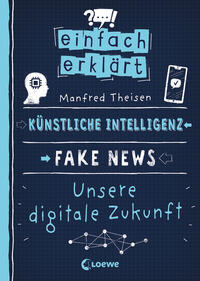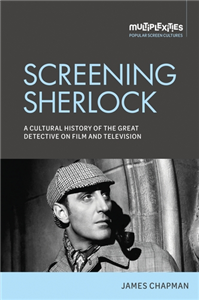Your Search Results
-
Iron Bridge Publishing
Iron Bridge Publishing is a new independent & hybrid publisher with a mission to spread positive and constructive ideas.
View Rights Portal
-
Promoted Content
-
Promoted ContentJanuary 2001
Qualitative Forschung
Theorie, Methoden, Anwendung in Psychologie und Sozialwissenschaften
by Flick, Uwe
-
 Trusted Partner
September 2009
Trusted Partner
September 2009Sozialforschung
Methoden und Anwendungen: Ein Überblick für die BA-Studiengänge
by Flick, Uwe
-
 Trusted Partner
Trusted Partner
-
 Trusted Partner
April 2006
Trusted Partner
April 2006Qualitative Evaluationsforschung
Konzepte, Methoden, Umsetzung
by Herausgegeben von Flick, Uwe
-
 Trusted Partner
January 1995
Trusted Partner
January 1995Psychologie des Sozialen
Repräsentationen in Wissen und Sprache
by Herausgegeben von Flick, Uwe
-
 Trusted Partner
Trusted Partner
-
 Trusted Partner
October 2000
Trusted Partner
October 2000Qualitative Forschung
Ein Handbuch
by Herausgegeben von Flick, Uwe; Herausgegeben von Kardorff, Ernst von; Herausgegeben von Steinke, Ines; Beiträge von Flick, Uwe; Beiträge von Kardorff, Ernst von; Beiträge von Steinke, Ines; Beiträge von Hildenbrand, Bruno; Beiträge von Willems, Herbert; Beiträge von Bergmann, Jörg R.; Beiträge von Lindner, Rolf; Beiträge von Nadig, Maya; Beiträge von Reichmayr, Johannes; Beiträge von Wolff, Stephan; Beiträge von Lincoln, Ivonna S.; Beiträge von Hitzler, Ronald; Beiträge von Eberle, Thomas S.; Beiträge von Denzin, Norman K.; Beiträge von Soeffner, Hans-Georg; Beiträge von Marotzki, Winfried; Beiträge von Bude, Heinz; Beiträge von Honer, Anne; Beiträge von Winter, Rainer; Beiträge von Gildemeister, Regine; Beiträge von Rosenstiel, Lutz von; Beiträge von Meinefeld, Werner; Beiträge von Reichertz, Jo; Beiträge von Merkens, Hans; Beiträge von Kelle, Udo; Beiträge von Erzberger, Christian; Beiträge von Hopf, Christel; Beiträge von Hermanns, Harry; Beiträge von Bohnsack, Ralf; Beiträge von Lüders, Christian; Beiträge von Harper, Douglas; Beiträge von Kowal, Sabine; Beiträge von O'Connell, Daniel C.; Beiträge von Schmidt, Christiane; Beiträge von Rosenthal, Gabriele; Beiträge von Fischer-Rosenthal, Wolfram; Beiträge von Mayring, Philipp; Beiträge von Böhm, Andreas; Beiträge von Knoblauch, Hubert; Beiträge von Luckmann, Thomas; Beiträge von Parker, Ian; Beiträge von König, Hans-Dieter; Beiträge von Matt, Eduard; Beiträge von Bauer, Martin; Beiträge von Métraux, Alexandre; Beiträge von Ohlbrecht, Heike
-
 Trusted Partner
March 2023
Trusted Partner
March 2023Einfach erklärt - Künstliche Intelligenz - Fake News - Unsere digitale Zukunft
Leicht verständliches Sachbuch über Algorithmen und Probleme digitaler Kommunikation - Für Kinder ab 10 Jahren
by Manfred Theisen, Mo Büdinger
Die Reihe Einfach erklärt hält, was sie verspricht: Hier werden komplexe Themen leicht verständlich aufbereitet und anschaulich illustriert. Kurze Kapitel, eine klare Struktur und der coole Mix aus Fotos und modernen Infografiken helfen Leser*innen ab zehn Jahren, schnell und unkompliziert neues Wissen zu erlangen. So klappt es mit dem Durchblick – garantiert! Was ist ein Algorithmus? Können Maschinen denken? Welche technischen Entwicklungen wird es in der Zukunft geben? Wie entstehen Fake News? Und wie können Staaten und Regierungen all das nutzen, um ihre Bevölkerung zu beeinflussen? Der Autor spannt den Bogen von Algorithmen über den Einsatz von künstlicher Intelligenz in verschiedenen Bereichen bis hin zum hochaktuellen Thema Propaganda. Durch leicht verständliche Erklärungen und zahlreiche detaillierte Infografiken wird so das Interesse an unserer technischen Zukunft geweckt.
-
 Trusted Partner
The ArtsJune 2025
Trusted Partner
The ArtsJune 2025Toronto New Wave cinema and the anarchist-apocalypse
by David Christopher
The Toronto New Wave (TNW) comprises a group of avant-garde filmmakers working in Canada from the 1980s and into the new millennium whose innovative film works share significant affinities with anarchist themes and aesthetics. Several of the TNW filmmakers openly identify as anarchists and/or acknowledge a debt to anarchism in their production of highly apocalyptic narratives as part of their cinematic political projects. However, recognition of anarchism's progressive apocalyptic theoretical relevance has yet to be substantially taken up by scholarship in cinema analysis. This analysis introduces an anarchist-inflected analytical methodology to understand the apocalyptic-revelatory political work these films attempt to accomplish in the perceptual space between the filmic texts and both their auteurs and potential viewers, and to re-locate the TNW within cinema history as an ongoing phenomenon with new significance in an apocalyptic era of digital distribution.
-
 Trusted Partner
The ArtsJanuary 2019
Trusted Partner
The ArtsJanuary 2019European Film Noir
by Andrew Spicer
European Film Noir is the first book to bring together specialist discussions of film noir in specific European national cinemas. Written by leading scholars, this groundbreaking study provides an authoritative understanding of an important aspect of European cinema and of film noir itself, for too long considered as a solely American form. The Introduction reviews the problems of defining film noir, its key characteristics and discusses its significance to the development of European film, the relationship of specific national films noirs to each other, to American noir and to historical and social change. Eight chapters then discuss film noir in France, Germany, Britain and Spain, analysing both earlier developments and the evolution of neo-noir through to the present. A further chapter explores film noir in Italian cinema where its presence is not so well defined. Each piece provides a critical overview of the most significant films in relation to their industrial and social contexts. European Film Noir is an important contribution to the study of European cinema that will have a broad appeal to undergraduates, cinéastes, film teachers and researchers.
-
 Trusted Partner
Trusted Partner
-
 Trusted Partner
The ArtsFebruary 2025
Trusted Partner
The ArtsFebruary 2025Screening Sherlock
A cultural history of the Great Detective on film and television
by James Chapman
Screening Sherlock is the first book-length academic study of the film and television career of the most famous detective in fiction. Chapman explores the contexts, adaptation strategies and critical reception of Sherlock Holmes (and Dr Watson) on film and television in Britain and the United States. The book includes case studies of such famous Holmes impersonators as William Gillette, Basil Rathbone, Peter Cushing, Jeremy Brett and Benedict Cumberbatch, as well as charting a path through many lesser-known productions. From early cinema to the Hollywood studio system, and from heritage drama to contemporary postmodern television, Screening Sherlock is an indispensible work for all aficionados of Arthur Conan Doyle's consulting detective of Baker Street.
-
 Trusted Partner
The ArtsJanuary 2019
Trusted Partner
The ArtsJanuary 2019Realist film theory and cinema
The nineteenth-century Lukácsian and intuitionist realist traditions
by Ian Aitken
'Realist film theory and cinema' embraces studies of cinematic realism and 19th century tradition, the realist film theories of Lukács, Grierson, Bazin and Kracauer, and the relationship of realist film theory to the general field of film theory and philosophy. This is the first book to attempt a rigorous and systematic application of realist film theory to the analysis of particular films. The book suggests new ways forward for a new series of studies in cinematic realism, and for a new form of film theory based on realism. It stresses the importance of the question of realism both in film studies and in contemporary life. Aitken's work will be of interest to scholars and advanced students of film studies, literary studies, media studies, cultural studies and philosophy.
-
 Trusted Partner
The ArtsJune 2021
Trusted Partner
The ArtsJune 2021Lukácsian film theory and cinema
A study of Georg Lukács' writing on film 1913–1971
by Ian Aitken
Lukácsian film theory and cinema explores Georg Lukács' writings on film. The Hungarian Marxist critic Georg Lukács is primarily known as a literary theorist, but he also wrote extensively on the cinema. These writings have remained little known in the English-speaking world because the great majority of them have never actually been translated into English - until now. Aitken has gathered together the most important essays and the translations appear here, often for the first time. This book thus makes a decisive contribution to understandings of Lukács within the field of film studies, and, in doing so, also challenges many existing preconceptions concerning his theoretical position. For example, whilst Lukács' literary theory is well known for its repudiation of naturalism, in his writings on film Lukács appears to advance a theory and practice of film that can best be described as naturalist. Lukácsian film theory and cinema is divided into two parts. In part one, Lukács' writings on film are explored, and placed within relevant historical and intellectual contexts, whilst part two consists of the essays themselves. This book will be of considerable interest to scholars and students working within the fields of film studies, literary studies, intellectual history, media and cultural studies. It is also intended to be the final volume in a trilogy of works on cinematic realism, which includes the author's earlier European film theory and cinema (2001), and Realist film theory and cinema (2006).
-
 Trusted Partner
The ArtsJune 2021
Trusted Partner
The ArtsJune 2021Medieval film
by Anke Bernau, Bettina Bildhauer
Medieval film explores theoretical questions about the ideological, artistic, emotional and financial investments inhering in cinematic renditions of the medieval period. What does it mean to create and watch a 'medieval film'? What is a medieval film and why are they successful? This is the first work that attempts to answer these questions, drawing, for instance, on film theory, postcolonial theory, cultural studies and the growing body of work on medievalism. Contributors investigate British, German, Italian, Australian, French, Swedish and American film, exploring topics such translation, temporality, film noir, framing and period film - and find the medieval lurking in inexpected corners. In addition it provides in-depth studies of individual films from different countries including The Birth of a Nation to Nosferatu, and Robin Hood: Prince of Thieves. Medieval Film will be of interest to medievalists working in disciplines including literature, history, to scholars working on film and in cultural studies. It will also be of interest to undergraduates, postgraduates and to an informed enthusiast in film or/and medieval culture.
-
 Trusted Partner
The ArtsJanuary 2019
Trusted Partner
The ArtsJanuary 2019Medieval film
by Anke Bernau, Bettina Bildhauer
Medieval film explores theoretical questions about the ideological, artistic, emotional and financial investments inhering in cinematic renditions of the medieval period. What does it mean to create and watch a 'medieval film'? What is a medieval film and why are they successful? This is the first work that attempts to answer these questions, drawing, for instance, on film theory, postcolonial theory, cultural studies and the growing body of work on medievalism. Contributors investigate British, German, Italian, Australian, French, Swedish and American film, exploring topics such translation, temporality, film noir, framing and period film - and find the medieval lurking in unexpected corners. In addition it provides in-depth studies of individual films from different countries including The Birth of a Nation to Nosferatu, and Robin Hood: Prince of Thieves. Medieval film will be of interest to medievalists working in disciplines including literature, history, art history, to scholars working on film and in cultural studies. It will also be of interest to undergraduates, postgraduates and to an informed enthusiast in film or/and medieval culture.
-
 Trusted Partner
The ArtsDecember 2019
Trusted Partner
The ArtsDecember 2019Screening the Paris suburbs
From the silent era to the 1990s
by Philippe Met, Annie Fourcaut, Roland-François Lack, Jean-Louis Pautrot, Keith Reader, Margaret Flinn, Eric Bullot, Tristan Jean, Malcolm Turvey, Elisabeth Cardonne-Arlyck, Térésa Faucon, Philippe Met, Camille Canteux, Derek Schilling, Guillaume Soulez, David Vasse, Derek Schilling
Decades before the emergence of a French self-styled 'hood' film around 1995, French filmmakers looked beyond the gates of the capital for inspiration and content. In the Paris suburbs they found an inexhaustible reservoir of forms, landscapes and social types in which to anchor their fictions, from bourgeois villas and bucolic riverside cafés to post-war housing estates and postmodern new towns. For the first time in English, contributors to this volume address key aspects of this long film history, marked by such towering figures as Jean Renoir, Jacques Tati and Jean-Luc Godard. Idyllic or menacing, expansive or claustrophobic, the suburb served divergent aesthetic and ideological programmes across the better part of a century. Themes central to French cultural modernity - class conflict, leisure, boredom and anti-authoritarianism - cut across the fifteen chapters.
-
 Trusted Partner
Trusted Partner
-
 Trusted Partner
Trusted Partner





























